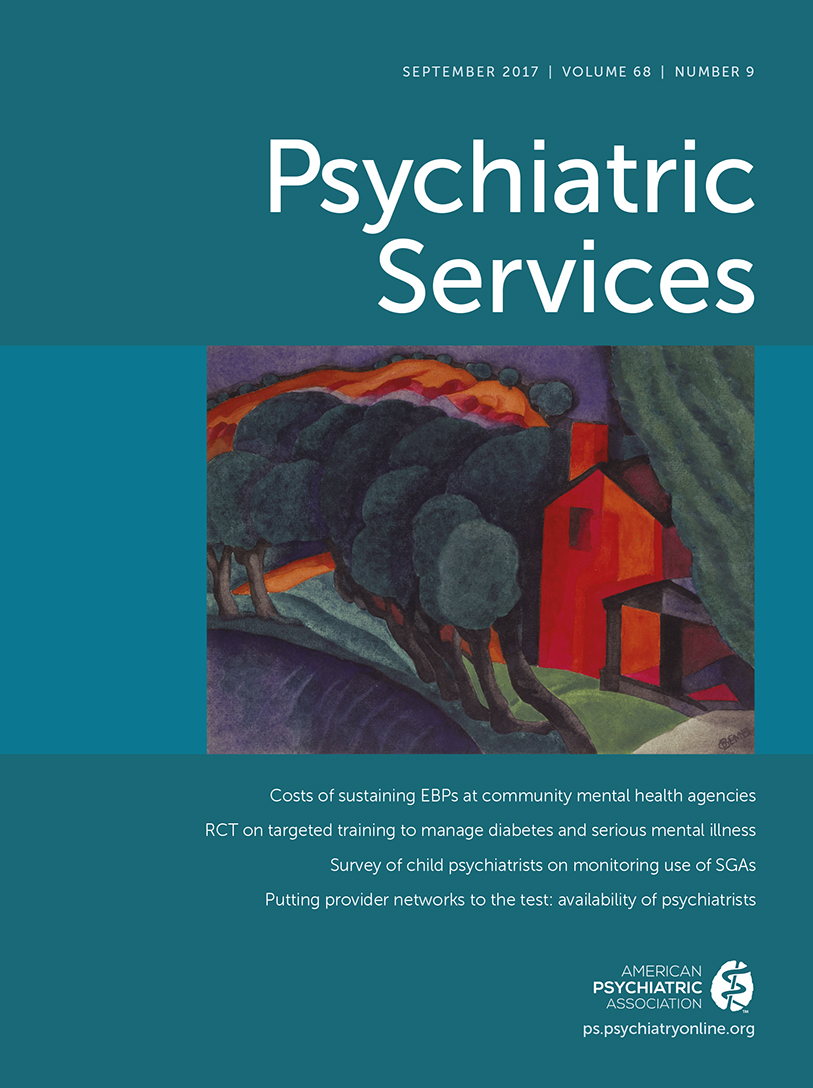Mental Disorders as a Basis for Physician-Assisted Death
TO THE EDITOR: In the April Law and Psychiatry column, Dr. Paul Appelbaum discusses laws in countries that permit the physician-assisted deaths of individuals suffering from a mental illness (1). While Dr. Appelbaum says that no states in the United States currently allow medically assisted death for people with an intractable mental illness, a recent New Jersey case demonstrates grounds for such actions to take place. A New Jersey court decision permitted a 29-year-old woman with severe anorexia to refuse further treatment because she did not consent to forced feeding, and the judge believed that her recovery was unlikely (2) with or without forced feedings. The judge’s decision noted that the patient documented in a Practitioner’s Orders for Life Sustaining Treatment (POLST) her wishes not to be force-fed, although she made her desires known while she was hospitalized for anorexia under involuntary commitment.
This case raises questions about the role of the patient’s POLST in making a determination about patient care because feeding was not an end-of-life intervention. I have other concerns about the use of POLST documents for people with mental illness. POLST forms provide portable medical orders and are increasingly used to document end-of-life preferences, but these forms lack the strict requirements for witnessing and signing that exist with advance directives (3). The standardized and brief POLST form may not be as appropriate as the more general guidance offered by an advance directive, which is adaptable to various settings and contexts. POLST forms are most helpful when a person’s choices are consistent over time and when future medical needs are predictable, such as is the case with individuals entering hospice or when people with dementia enter nursing facilities (3).
Some individuals with a mental illness will not have the capacity to formulate a POLST. We also need to be concerned whether surrogate decision makers will make decisions that accurately reflect the wishes of their clients with mental illness. Individuals with mental illness often do not have a supportive family or the personal resources needed to ensure that their rights are respected during end-of-life discussions (4). Further, medical staff may not understand the psychiatric patients’ decision-making challenges, and these patients may also face discrimination in these settings. Various documents reviewed on Web sites of states with POLST offer little guidance for completing a POLST with individuals who have a mental, intellectual, or developmental disability (5).
Advance care planning is informed by a broad research base, but studies have not generally addressed the planning and palliative care needs of individuals with mental illness (4). Unfortunately, although mental health professionals work more closely than other health care professionals to help these individuals communicate their preferences, mental health care workers are not generally aware of palliative care issues and relevant laws. As more individuals with mental illness enter long-term care facilities or need palliative care, we must be sure that they have adequate assistance and protections when grappling with these difficult choices.
1 : Should mental disorders be a basis for physician-assisted death? Psychiatric Services 68:315–317, 2017Link, Google Scholar
2 : Judge rules anorexic Morris woman can’t be force-fed. Daily Record Nov 21, 2016. http://www.dailyrecord.com/story/news/2016/11/21/judge-rules-anorexic-morris-county-woman-cannot-force-fed/94032374Google Scholar
3 : The problems with physician orders for life-sustaining treatment. JAMA 315:259–260, 2016Crossref, Medline, Google Scholar
4 : A staggered edge: end-of-life care in patients with severe mental illness (Editorial). General Hospital Psychiatry 44:1–3, 2017Crossref, Medline, Google Scholar
5 Oregon POLST Task Force: Physicians Orders for Life-Sustaining Treatment (POLST): use for persons with significant physical disabilities, developmental disabilities, and/or significant mental health condition who are now near the end of life. http://www.polst.org/wp-content/uploads/2013/03/POLSTPersonswithDisabilitiesLongDocument.Final_.pdf. Accessed June 21, 2017Google Scholar



